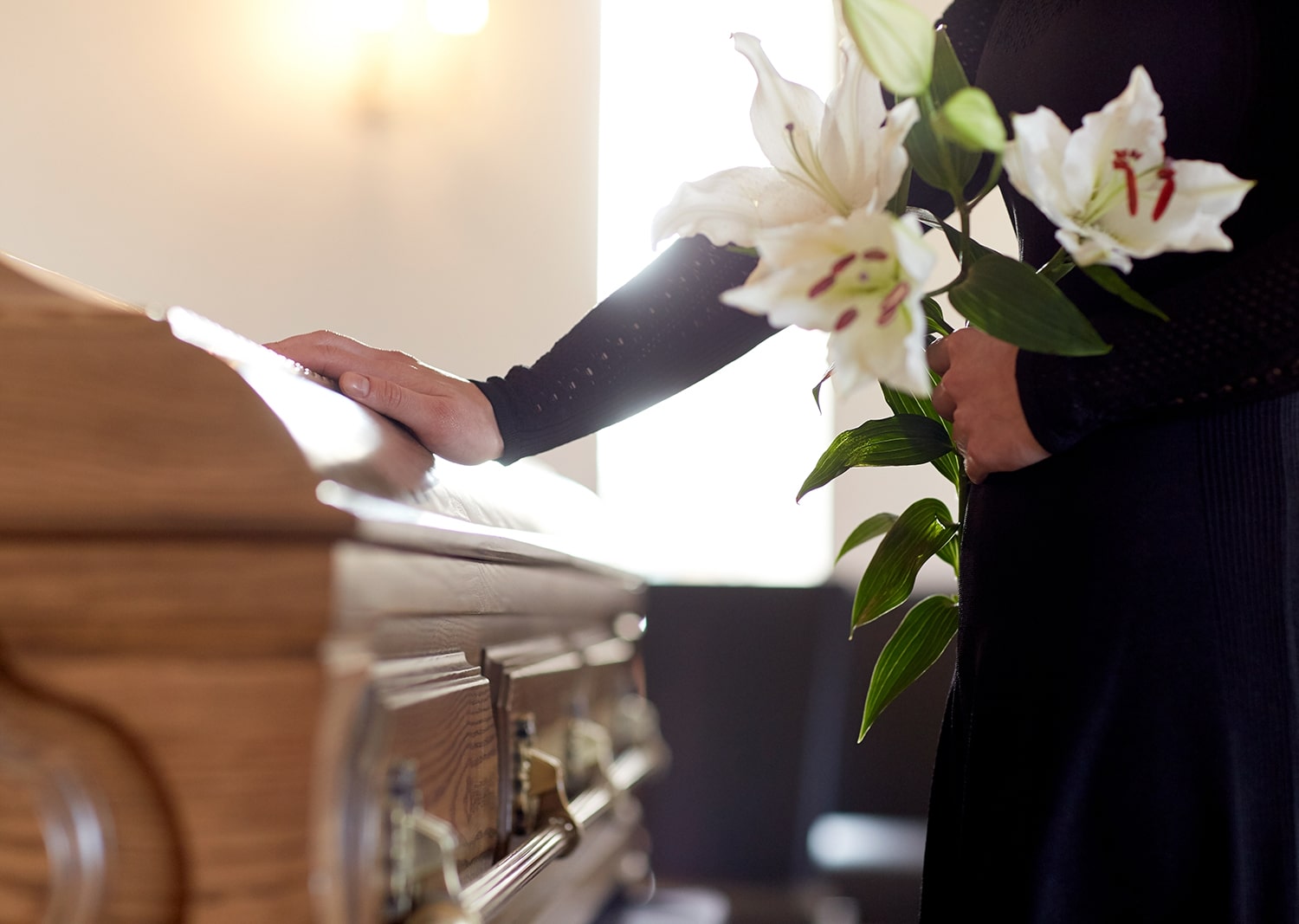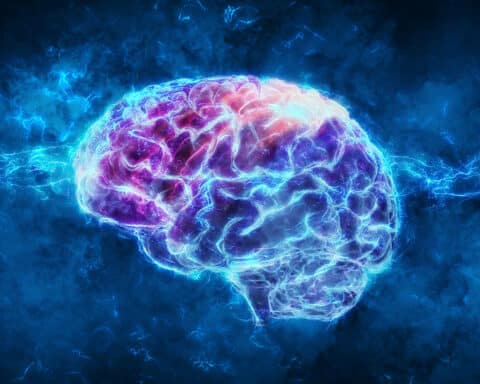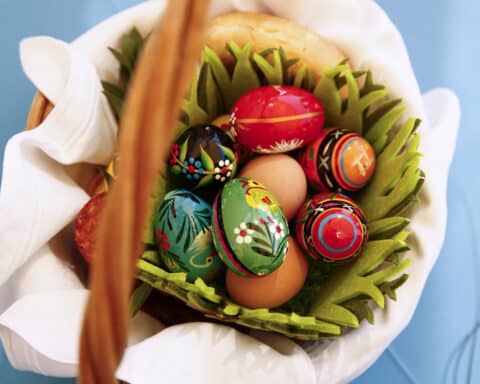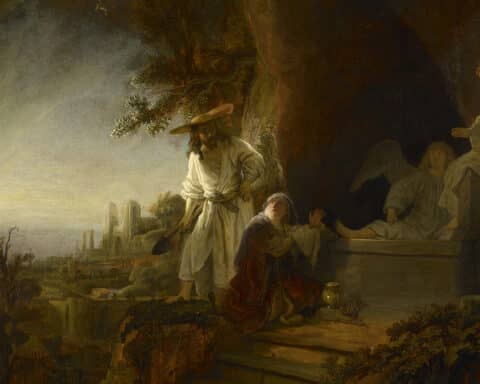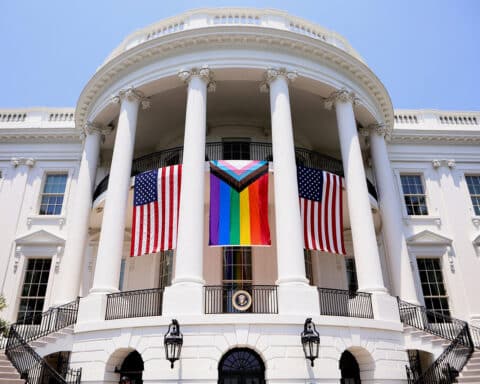It was four years ago, at this time of year, that COVID social isolation began in earnest. Remember?
First we started staying home from Mass, then from school, then from everything else. The thing that brought me up short, though, was when it dawned on me we wouldn’t be back to normal in time for Easter. It seemed so terrible not to be present for my favorite day of the liturgical year, such a loss.
Then my father died suddenly, just before Easter, and I had to adjust my views on loss.
It was a strange thing. Instead of planning for my father’s visit, we were planning his funeral. All through the Easter Vigil, live-streamed on a laptop, I was aware that this wasn’t ideal. We should be inside the actual church, actually receiving Christ’s body and blood, and instead we were crammed into our living room watching a tenor singing out “Christ our light” into an empty building.
But I couldn’t stop smiling.
It was a strange thing. The seminarian started to read from Genesis, telling us how the world was empty and void, and then God spoke, and there was light. He told us how God made the water, and fish to swim in it, the land, and creatures to crawl on it, and sun, moon, and stars to rule the day and night, and man. And breath for man, the breath of God. It was a good story, and I wanted to hear more. I was spellbound through the entire Mass, as if it were all new. Out of the void, God made something firm, something real, something for us to stand on. And then he gave us life.
Finding firm ground in grief
When I got the call that my father was dead, even as I cried, I kept finding little stepping stones of joy. It was like trying to make your way across a dark, formless swamp. No one would dispute that death and grief are dreadful and cold, but there was always something to stand on, something good.
I kept thinking: At least he died at home in his comfy chair, not hooked up to the beeping hospital machines he loathed. At least he was a praying man, and he had been to confession. At least the last thing I told him was that I love him. There was something for my feet to stand on amid the grief.
At least I believe in the resurrection of the body and life everlasting. It’s a good story, and I want to hear more. I kept thinking of it at his burial, where my siblings and I stood six feet apart, in an almost comically tragic scene straight out of a Russian novel, with fog and mud and solitary mourners by an open grave; and I smiled then too.
That was the year when one thing after another started to unravel in my life. I kept losing things, precious things, that I thought I utterly depended on; but I also kept finding firm ground under my feet. Not a lot of ground! But enough.
Social isolation is an old story — the oldest, you might say. The void stretches out dark and cold and formless before us, one way or another.
But the rest of the story, the reason for telling it, is that God speaks, and then solid land emerges. God speaks, and we have life, and he breathes his life into us. This never stops being true, not in the face of sickness, not in the face of uncertainty, not even in the face of death.
And not in the face of peace and plenty, either. This is why I’m still remembering it now, deliberately.
Remember, we need God
Now it is years later, and the sting of my father’s death, and the other losses that followed it, have mostly found their place among the thorns that always populate every human garden. Churches and streets and stores are full again, and we can go where we like, more or less.
But there is loss, and there is loss. Some losses are bearable, and some are not. Now, in this time of relative calm and ease, it might be easy to forget who it is we depend on for every breath, every step, every time the sun rises, every time life does continue. But don’t forget. Remember.
Sometimes it’s easier to see and feel God when everything else is dark and it’s so clear we depend on him. But to forget God because we think we don’t need him, and not to remember him again, would be a loss worse than death. Death is dark, but the loss of God is intolerable.
I want to remember always, deliberately, how the holy mighty one did not let us go. He did not let us stay lost in isolation. He made a foothold for us, and he made light. Remember! Don’t forget just because now it’s light.

